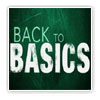Have You Heard About The Fat Letters?
Have you heard about the "Fat Letters"?
Recently I was a participant on a HuffPost Live segment about the "Fat Letters" that schools are sending home to the parents of overweight kids, like a bad report card, a warning notice about their weight. These letters have created an uproar, kids being traumatized, parents insulted and outraged, and school staffs unhappy conducting a program that many of them hate. HuffPost asked me to participate in the discussion because I was the fattest kid in school who grew up to be the "Weight Loss Guru" featured in a HuffPost blog a while back. At that time, I told them about the horrors of being the fattest kid in school and being tormented by well-meaning but misguided adults, so they wanted my opinion of the fat letters.
The very idea of this makes my blood boil. In my 30s, I finally figured out how to solve my obesity problem, lost 140 pounds, and I've been teaching others how for 30 years now. But as a kid, I started being the fattest kid in school at age 7, and I lived that painful experience for my entire school career. It was miserable. I hated getting weighed in class every year. Being overweight was the most painful experience of my childhood. I can't imagine making even it worse by having the school involved, singling out overweight kids by sending home letters as if report cards and teacher conferences weren't bad enough. It's not as if they know that doing this does any good. In fact, it does a lot of harm, parents as well as kids complaining so loudly that some states, Massachusetts for example, have stopped the practice.
More than 10 years ago, the CDC sounded the alarm about the growing obesity epidemic, and fighting it has become a part of our culture today. Michelle Obama brought childhood obesity to national prominence in 2008 and schools have become the front line in the battle. However, from what I've seen, they've gotten as many things wrong as they've gotten right. For one thing, they have no idea what harm they are doing with the kids. I grew up as a fat kid and though I didn't talk about it, it was a nightmare every day, getting bullied, being put on diets, feeling bad about myself. Mention my weight and it ruined the day. They have no idea how devastating bringing home this "fat letter" is. It's emotionally traumatizing for the kids. Parents are angry that the schools are sticking their noses in where they don't belong. They say this is a private matter, between them and their doctor.
Yes, the schools have a part to play in reversing childhood obesity, but it's humiliating, alienating and just plain wrong to single kids and families out. The schools' approach should be to educate the entire class. This is everybody's problem. After all, almost 70 percent of American adults are overweight and it's getting worse. They should send information about it to all parents. The Schools are right about one thing though, there is no solving this problem without the parents being on board. The schools are not the ones in a position of power here. Mom is.
Mothers are the most important and most powerful people in the world related to solving our childhood obesity epidemic. If the home supports habitual behavior that produces obesity, your child doesn't stand a chance of getting better, no matter what the schools do. He or she will lead the life of an obese kid, almost guaranteed to become an obese and sick adult. The only way an obese child can change is if the home and family changes, and that will only happen when mom says it will.
So, if your child is overweight, don't wait for a "fat letter," and don't be alarmed or angry if you get one. However, don't count on the school being able to help you solve the problem because they don't actually know how. However, I do. So here's a short course in what you need to do. And here's a bonus: If you've been battling with weight yourself, helping your child avoid or recover from obesity will not only spare your child, it will also solve your weight problem! Here's what to do:
1) Clear the house of high-calorie junk food. Snacking and eating as if it was a hobby or a sport has got to go if you want to control your weight. Have plenty of fruit and diet soda in the fridge so they have something to grab when they need it, but a house full of cookies, snack cakes, chips, candy and ice cream is the house of an obese person. People who have solved their weight problem have none of that in their house.
2) Feast and party occasionally, not every day. There are no bad calories in my book, but some foods are so calorically dense and addictive that you can only have them on special occasions, and then you need to send them home with the guests. Those who have Thanksgiving every day or a party every night are planning on being obese.
3) Help your child find pleasures other than food. Everyone needs comfort and pleasure, but learning to use food for that is a sure fire way to create a compulsive overeater. Help them to learn how to have pleasure in healthy ways. Swimming, biking, playing with dolls and Legos, fishing, crafts, games and friends -- these are all ways to make yourself feel good. And there are no calories!
4) Swim against the current. Our culture promotes overeating and obesity, and if you are going to refuse to be obese, you'll be rejecting the things that everybody else thinks are normal. Put your foot down with the kids, your friends, and your husband. Don't go to fast food places unless they have healthy selections, which some are starting to have. When they whine for junk food (husband included) "just say no", as if they were trying to talk you into letting them have drugs. (Obesity actually accounts for far more suffering and premature deaths than drug abuse.)
5) Become a calorie expert. Buy a calorie guide so you become an expert in portion size and healthy choices. There are no bad foods or bad calories in my mind, but until you get the knowledge of the caloric densities of the food you eat, there is no way to make intelligent choices. Eating without knowing the calories in the food is like going shopping at the mall and charging up all the things you like without looking at the price tags.
6) Never use the "d" word. I don't believe in "diets" and "dieting." Never tell a kid you're putting him on a diet. Believe me, it will backfire -- just as it does in adults.
These ideas are a good start. My book has more. You can take the lead by modeling and demanding a healthy way at home. Start at home, with yourself and with your family. Don't count on the schools to show you the way. You can save your child and your family by focusing on your own habits and your home. They will follow. No one gets in mama bear's way when her cub is threatened, even papa bear, and mom, your child is threatened by this epidemic.
William Anderson is a Licensed Mental Health Counselor who specializes in weight loss, eating disorders and addictions. He is the creator of "Therapeutic Psychogenics", which helped him lose 140 pounds permanently thirty years ago after years of obesity and dieting failure. He has written a book about it, The Anderson Method, and he is teaching these techniques to individuals and therapists all over the country.
-
Is Slimming Stopping You From Losing Weight
Have you tried every possible diet plan, even the fads when youve been
-
Fat loss Questions – Belly fat and Diet
I manage weight reduction questions about tummy fat and diet from my f
-
Diet Foods: Healthy Foods That Help You Lose Weight and Combat Aging
Muffin top, middle-age spread, the boomer 50... Whatever you w
-
Which fruits and vegetables are best for weight loss?
Research were watching Eating more fruits and vegetables can
-
How Women Can Boost Their Metabolism and Lose Weight
With regards to weight reduction, men no
-
8 Drinks That Are Making You Fat
When it comes to trackin
- DON'T MISS
- Tips on getting in shape for your wedding day...and beyond.
- Side Effects Of Weight Loss Pills - Are You Aware Of Them?
- Loose Stomach Fat
- Boost Your Metabolism Naturally for Weight Loss
- The One Healthy Drink You Should Always Avoid: A Hormone Expert Explains
- Thinking of weight loss? Try a low carb diet
- Weight Loss - Fast Weight Loss Made Easy
- Metabolic Diet: An Effective Weight Loss Solution
- Lose Weight Fast, And Keep It Off!
- The Top 7 Ways to get Rid of Stomach Fat




